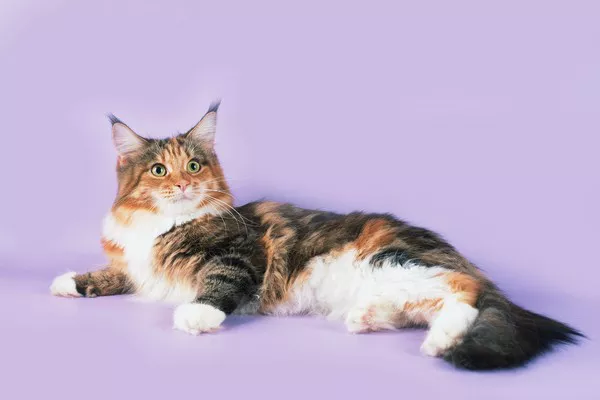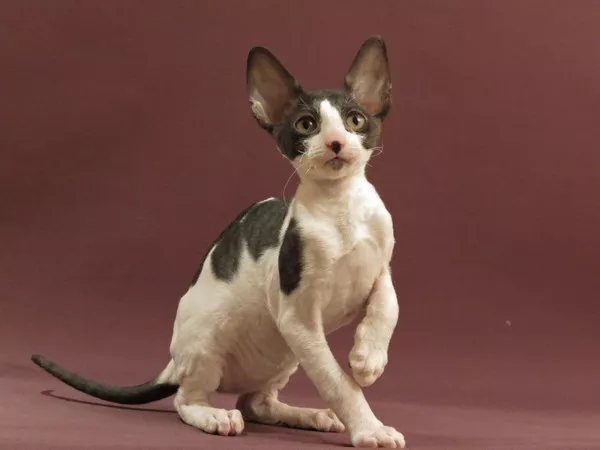The Maine Coon cat, known for its majestic appearance, friendly demeanor, and large size, has captured the hearts of cat enthusiasts worldwide. However, for potential pet owners with allergies, one critical question often arises: Is the Maine Coon cat hypoallergenic? This article delves into the characteristics of the Maine Coon cat, the nature of pet allergies, and whether this beloved breed can be considered hypoallergenic.
Understanding Pet Allergies
Before exploring the hypoallergenic status of Maine Coon cats, it’s essential to understand what causes pet allergies. Allergic reactions to pets are primarily triggered by proteins found in their skin cells (dander), saliva, and urine. When these proteins are shed into the environment, they can become airborne or settle on surfaces, leading to allergic reactions in sensitive individuals.
Common symptoms of pet allergies include:
1. Sneezing
2. Runny or stuffy nose
3. Itchy or watery eyes
4. Coughing or wheezing
5. Skin rashes or hives
The major allergen associated with cats is Fel d 1, a protein found in cat saliva and skin glands. When cats groom themselves, this protein spreads onto their fur and skin, which then sheds into the environment.
Characteristics of Maine Coon Cats
The Maine Coon cat is one of the oldest natural breeds in North America, originating from the state of Maine, where it is the official state cat. These cats are known for their impressive size, with males typically weighing between 13 to 18 pounds (or more) and females weighing between 8 to 12 pounds. They have a distinctive appearance characterized by a long, shaggy coat, tufted ears, bushy tail, and a friendly, sociable personality.
Key characteristics of Maine Coon cats include:
Large Size: Maine Coons are among the largest domesticated cat breeds.
Long, Thick Coat: Their fur is dense and water-resistant, with a silky undercoat.
Friendly Temperament: Maine Coons are known for their affectionate, playful, and sociable nature.
Intelligence: These cats are highly intelligent and can be trained to perform tricks and tasks.
Are Maine Coon Cats Hypoallergenic?
The term “hypoallergenic” refers to something that is less likely to cause an allergic reaction. It’s important to note that no cat breed is completely hypoallergenic, as all cats produce allergens to some extent. However, some breeds may produce fewer allergens or shed less, potentially making them more suitable for individuals with allergies.
Regarding Maine Coon cats, several factors need to be considered:
Allergen Production: Maine Coons, like all cats, produce Fel d 1 protein. There is no scientific evidence to suggest that Maine Coons produce less Fel d 1 compared to other breeds.
Shedding: Maine Coons have a long, thick coat that sheds year-round, with increased shedding during seasonal changes. More shedding can lead to a greater spread of allergens in the home environment.
Grooming Needs: Due to their dense fur, Maine Coons require regular grooming. While grooming can help reduce loose fur and dander, it also means more frequent exposure to allergens for those handling the cat.
Factors Influencing Allergen Levels in Cats
Several factors can influence the amount of allergens a cat produces and how these allergens affect people. These include:
Cat’s Age: Kittens generally produce fewer allergens than adult cats.
Sex of the Cat: Male cats, especially intact males, tend to produce more allergens than females or neutered males.
Cleaning Practices: Regular cleaning of the home, including vacuuming and washing bedding, can help reduce allergen levels.
Air Filtration: Using air purifiers with HEPA filters can help reduce airborne allergens.
Managing Cat Allergies
For individuals who are allergic to cats but still wish to own a Maine Coon or any other breed, there are several strategies to manage and reduce allergy symptoms:
Regular Grooming: Regularly brushing the cat can help reduce shedding and the spread of dander. It is advisable for non-allergic household members to perform grooming tasks.
Bathing: Bathing the cat occasionally can help reduce allergens on the fur. Consult with a veterinarian for appropriate bathing frequency and products.
Clean Living Environment: Keeping the home clean by vacuuming frequently with a HEPA filter vacuum cleaner, dusting, and washing fabrics can reduce allergen buildup.
Air Purifiers: Using air purifiers with HEPA filters in the home can help capture airborne allergens.
Designated Cat-Free Zones: Creating cat-free zones, especially in bedrooms, can provide allergy sufferers with a space to reduce exposure to allergens.
Medications: Over-the-counter or prescription allergy medications, such as antihistamines, decongestants, or nasal corticosteroids, can help manage symptoms. Consult with a healthcare provider for appropriate treatment options.
Other Cat Breeds Considered Hypoallergenic
For those seeking potentially hypoallergenic cat breeds, there are several breeds known to produce fewer allergens or shed less than others. These include:
Siberian: Some studies suggest that Siberian cats produce lower levels of Fel d 1 protein.
Balinese: Despite having long fur, Balinese cats are believed to produce fewer allergens.
Oriental Shorthair: Their short coat reduces the amount of shedding and dander spread.
Devon Rex and Cornish Rex: These breeds have unique fur types that shed less.
Sphynx: Hairless cats like the Sphynx have no fur to shed, but they still produce dander and require regular skin cleaning.
Conclusion
While Maine Coon cats are not hypoallergenic, it is essential to recognize that no cat breed is entirely free from allergens. Maine Coons produce Fel d 1 protein, the primary allergen associated with cats, and their long, thick coat sheds year-round. For individuals with cat allergies, managing exposure and maintaining a clean living environment can help reduce symptoms.












![Do Birman Cats Like to Cuddle? [Revealed!]](https://www.catsmeowweb.com/wp-content/uploads/2023/06/burmese-cat-25.jpeg.webp)
![Do Birman Cats Like to Cuddle? [Revealed!]](https://www.catsmeowweb.com/wp-content/uploads/2023/06/burmese-cat-14.webp)











